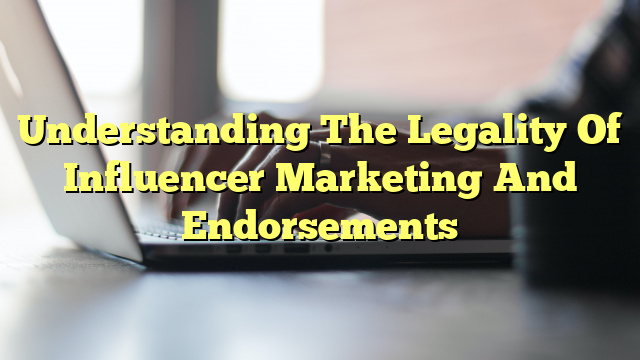Introduction
Influencer marketing is an industry worth billions, and it’s growing every day. It’s an effective way to reach a broad audience with a unique message. However, when it comes to legal issues, influencers need to be aware of the laws and regulations governing their endorsement activities. This article will discuss the legalities of influencer marketing and endorsements and provide answers to some common questions.
What is Influencer Marketing?
Influencer marketing is the process of building relationships between brands and influencers with the goal of promoting a product or service. An influencer is someone who has a large following or is looked up to in a particular field. Brands work with influencers to create content that is shared with their followers, which can lead to increased brand recognition and sales.
What is the Difference Between Endorsement and Influencer Marketing?
The difference between endorsement and influencer marketing is that an endorsement is a specific statement or comment about a product or service made by an influencer. Influencer marketing, on the other hand, is a broader term that encompasses a range of tactics used to leverage influencers’ influence in order to reach a target audience.
What Guidelines Do Influencers Have to Follow to Be Honest About Their Promotions?
In order to be honest about their promotions, influencers should follow guidelines set out by the FTC. The FTC requires all influencers to disclose any connection they have to a product or service they’re promoting, and that they must make this disclosure clearly and conspicuously. This disclosure should be made in a way where it can easily be seen by followers and should be included in the content itself, as well as in the caption or description.
What is an Influencer Endorsement?
An influencer endorsement is a specific statement made by an influencer about a product or service. This statement can be positive or negative and must be disclosed in order to remain compliant with the FTC’s guidelines. Influencers should also be aware that their endorsements can be taken out of context or misinterpreted by their followers.
Is an Influencer Liable for Trademark Infringement?
Yes, an influencer is liable for trademark infringement if they use a protected mark without permission. This applies to endorsements as well, so it’s important to make sure any marks used in promotions are properly licensed. Additionally, influencers should also be aware of any other laws that apply to their endorsements, such as copyright or right of publicity laws.
Conclusion
Influencer marketing and endorsements are powerful tools for building brand recognition and generating sales. However, it’s important for influencers to be aware of the legalities surrounding their activities. They should make sure that any endorsements they make are honest and follow all applicable laws and regulations.

